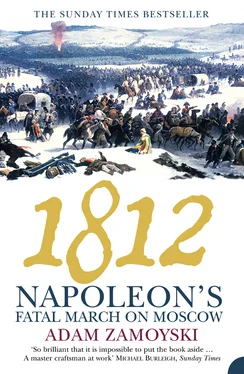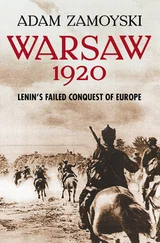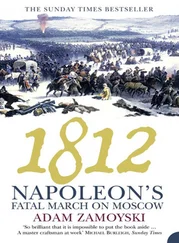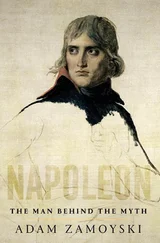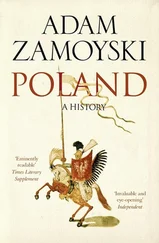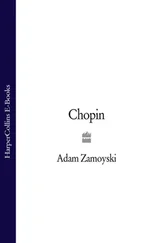The ending of feudal practices gave agriculture a boost, the abolition of guild and other restrictions encouraged industry and trade, the removal of tolls and frontiers liberated trade. The confiscation of Church property was followed by the building of schools and the development of universities. Not surprisingly, all this made Napoleon popular with the middle classes, with small traders, peasants, artisans and Jews, as well as with progressive intellectuals, students and writers. Johan Wilhelm Gleim, a poet more used to singing the glories of Frederick the Great, wrote an ode to Napoleon, Friedrich Hölderlin also immortalised him in verse, and Beethoven dedicated his ‘Eroica’ symphony to him.
Although many were put off by his decision to take the imperial crown and some even felt betrayed by the act, German intellectuals continued to be fascinated by Napoleon, whom they saw as a figure in the mould of Alexander the Great. Some hoped he would revive the old German empire like a latter-day Charlemagne. To others, he appeared as some kind of avatar. The young Heinrich Heine imagined Christ riding into Jerusalem on Palm Sunday as he watched Napoleon making his entry into his native Düsseldorf. Georg Wilhelm Friedrich Hegel famously identified him as ‘the world-spirit on horseback’.
But that moment, just after the victories of Jena and Auerstädt, in which Napoleon destroyed the Prussian army and shook the Prussian state to its core, was to be something of a turning point. The Prussians were shocked and insulted by the French victories, but they also saw them as proof of the superiority of France and her political culture. When Napoleon rode into Berlin he was greeted by crowds which, according to one French officer, were as enthusiastic as those that had welcomed him in Paris on his triumphant return from Austerlitz the previous year. ‘An undefinable feeling, a mixture of pain, admiration and curiosity agitated the crowds which pressed forward as he passed,’ in the words of one eyewitness. 1Napoleon won the hearts of the Berliners as well as their admiration over the next weeks.
But he treated Prussia and her King worse than he had treated any conquered country before. At Tilsit he publicly humiliated Frederick William by refusing to negotiate with him, and by treating Queen Louise, who had come in person to plead her country’s cause, with insulting gallantry. He did not bother to negotiate, merely summoning the Prussian Minister Count Goltz to let him know his intentions. He told the Minister that he had thought of giving the throne of Prussia to his own brother Jérôme, but out of regard for Tsar Alexander, who had begged him to spare Frederick William, he had graciously decided to leave him in possession of it. But he diminished his realm by taking away most of the territory seized by Prussia from Poland, so that the number of his subjects, which had grown to 9,744,000, was reduced to 4,938,000. Napoleon would brook no discussion, and Frederick William had to submit. 2
Having done so, he wrote to the Emperor on 3 August 1807 entreating him to accept Prussia as an ally of France, addressing him as ‘the greatest man of our century’. Napoleon ignored the request. The reason he did not wish to encumber himself with such an ally was that he intended to despoil the country. In the treaty he had foisted on Prussia, he had undertaken to evacuate his troops, but only after all the indemnities agreed upon had been paid. But the level of the indemnities was never agreed, and while vast amounts of money did pour out of the Prussian treasury into French coffers, some 150,000 French troops continued to live off the land, happily helping themselves to everything they required. French military authorities virtually supervised the administration, while the economy plummeted. The Prussian army had been reduced to 42,000 men, with the result that hundreds of thousands of disbanded soldiers and even officers wandered the land begging for their subsistence. 3
Napoleon did consider abolishing Prussia altogether. The kingdom had only emerged as a major power sixty years before (as a result of a French defeat), but it was efficient and expansive, and might one day rally the rest of Germany, which was something he wanted to avoid at all costs. But while he continued to exploit and humiliate it in every way, he did not get around to dismantling it. In effect, Napoleon’s treatment of Prussia is paradigmatic of his whole mishandling of the German issue, for which his successors were still paying in 1940.
If Frederick William had every reason to feel aggrieved, most of the other rulers in Germany, grouped in the Confederation of the Rhine, had much to thank Napoleon for. For one thing, they were relieved to be rid of the heavy-handed Habsburg overlordship. Although they were now subjected to Napoleon through a series of alliances, they had grown in power within their own realms. Several had even been promoted, and most had gained in territory, becoming proper sovereigns with their own armies.
Landgrave Ludwig of Hesse-Darmstädt had seen the size of his fief swell, and became a grand duke; the tiny Landgravate of Baden had also become a grand duchy, and its ruler Frederick Charles willingly married his grandson to Napoleon’s stepdaughter Stephanie de Beauharnais. The Elector of Saxony had seen his realm expand and turn into a kingdom. Bavaria too was enlarged and turned into a kingdom, and in 1809 King Maximillian I acquired more territory, making his realm larger than Prussia. Württemberg, which had been a mere duchy, was extended with every Napoleonic victory and its elector Frederick was promoted to the rank of king in 1806. He was only too happy to see his daughter marry Napoleon’s brother Jérôme.
Jérôme himself ruled over the Kingdom of Westphalia, created by Napoleon at the heart of Charlemagne’s Germany with its capital at Cassel, extended again in 1810 to include Hanover, Bremen and part of the North Sea coast. ‘What the people of Germany desire impatiently is that individuals who are not noble but have talents should have an equal right to your consideration and to employment, that all kinds of servitude and all intermediary links between the sovereign and the lowest class of the people should be entirely abolished,’ Napoleon wrote to Jérôme as he took up the throne of Westphalia. ‘The benefits of the Code Napoléon , transparency of procedures and the jury system will be the distinguishing characteristics of your monarchy. And if I have to be quite open with you, I count more on their effect for the extension and consolidation of your monarchy than on the greatest victories. Your people must enjoy a liberty and equality and a well-being unknown to the other peoples of Germany,’ he continued, making it clear that the security of his throne and that of France were better served by this great benefit she was able to bestow than by any number of armies or fortresses. 4
Some of the other rulers did follow the French example and adopted the Code Napoléon . King Maximillian of Bavaria even brought in a constitution. Most of them, however, only introduced those French laws which gave them greater power over their subjects, sweeping away in the process venerable institutions and hard-won privileges. But whether they were enlightened liberals or authoritarian despots like the King of Württemberg, their subjects were immeasurably better off in every way than they had been before they had heard of Bonaparte.
Causes for discontent nevertheless began to pile up. The most vociferous opponents of the new arrangements were, unsurprisingly, the horde of imperial counts and knights who had lost their estates and privileges. More liberal elements were disappointed that the changes wrought by Napoleon had not gone far enough. The old free cities and some of the bishoprics, which had been havens of German patriotism, had been awarded to one or other of the rulers Napoleon had favoured. Along with their independence they lost some of their freedoms. Many were disappointed that the old aristocratic oligarchy had not been replaced by republics, and some would have liked to see the creation of one great German state.
Читать дальше
